- Home
- Dennis Lehane
Since We Fell Page 9
Since We Fell Read online
Page 9
“And he was the only bartender who worked there back then?”
“No, but he was the main one. I worked the bar some, my late wife, and old Harold, who was going senile right around then. That clear it up for you?”
“Do you know where I could find Lee?”
“Why don’t you tell me why you’re asking, Miss . . . ?”
“Childs.”
“Miss Childs. Why don’t you tell me why you’re asking about Lee?”
She couldn’t think of a single reason to lie, so she told him. “It’s possible he knew my mother.”
“Lee knew a lot of women.”
She took the plunge. “It’s possible he was my father.”
There was nothing but the sound of him breathing through his nostrils for so long she almost spoke again out of sheer anxiousness.
“How old are you?” he said eventually.
“Thirty-one.”
“Well,” Milo said slowly, “he was a good-looking son of a bitch back then. Dated a few—ten—women, I seem to remember. Even a penny can shine, I guess, when it’s newly minted.” More breathing.
She thought he was going to say more but after a while realized he wouldn’t be doing so. “I’d like to reach out to him. If you’d feel okay helping me, that would—”
“He’s dead.”
Two small hands grasped the sides of her heart and pushed inward. Ice water surged up the back of her neck and flooded her skull.
“He’s dead?” It came out louder than she’d intended.
“’Bout six years now, yeah. He left us, went to work for another bar in Elkton. A couple years after that, he died.”
“How?”
“Heart attack.”
“He would’ve been young.”
“Fifty-three?” Milo said. “Maybe fifty-four. Yeah, he was young.”
“What was his full name?”
“Well, miss, I don’t know you. I don’t know if you could lodge some paternity thing against the people he left behind. I don’t know enough about such things. But again, I don’t know you, that’s the problem.”
“Would it help if you did know me?”
“Absolutely.”
She took the train to Baltimore the next morning from Back Bay station. She innocently met the eyes of a college-age girl she passed on the platform, and the girl’s eyes bulged with sudden recognition. Rachel walked to the end of the platform with her head down. She took a spot near an older gentleman in a gray suit. He flashed her a sad smile and went back to reading Bloomberg Markets. She couldn’t tell if the sadness in his smile stemmed from pity for her or if he just possessed a sad smile.
She got on the train without further incident and found a seat near the rear of a half-empty car. With every mile the train covered, she felt she escaped her newfound identity as a public basket case just a bit more; by the time she passed through Rhode Island, she felt nearly relaxed. She wondered if some of her ease stemmed from the knowledge that she was returning, if not home, at least to her genesis. She also took strange comfort that she was following in reverse part of the journey her mother and Jeremy James had taken to western Massachusetts in the spring of 1979. Now it was mid-November, more than three decades later. The cities and towns she passed were caught between late fall and early winter. Some municipal parking lots had already shored up road salt and sand. Most trees were bare, and the sky was sunless, as bare as the trees.
“This is him here.” Milo placed a framed photograph on the bar in front of her, his stubby index finger positioned beside the face of a lean man of advancing hairline and advancing age. He had a high forehead, sunken cheeks, and her eyes.
Milo was about eighty and breathed with the aid of a liquid-oxygen canister perched in a hip pack nestled at the small of his back. The clear silicone tubing ran up his back and then hooked over his ears before draping down his cheekbones to where the nasal cannulas entered his nostrils. He’d been living with emphysema since his early seventies, he told Rachel. Lately the hypoxia had been progressing but not so fast it kept him from sneaking eight or ten cigarettes a day.
“Good genes,” Milo said as he placed an unframed photo down in front of her. “I got ’em. Lee didn’t.”
The unframed shot was a bit more candid than the first, which was a staff photo in which everyone was posing. This unframed photograph was from decades back. Lee had a full head of lanky dark brown hair, and his eyes were set farther up in his face. He was smiling at something a customer had said. While several of the other patrons laughed with their heads thrown back, Lee’s was a small smile, a withholding one; it wasn’t an invitation, it was a moat. He looked to be no more than twenty-seven or twenty-eight, and she could immediately see what her mother had been drawn to. That small smile was all coiled vitality and inflamed reticence. It promised too much and too little at the same time. Lee looked like the worst boyfriend and greatest fuck of all time.
She could see why her mother had described him as smelling like “lightning.” And she suspected that if she herself had walked into this bar in 1979 and this man had been standing behind it, she would have stayed for more than one drink. He fit the look of the profligate poet, the drug-addled painter-genius, the musician who’d die in a car crash the day after he signed his big record contract.
The tour of Lee’s life she received from Milo in photos, however, was of a journey confined mostly to the very bar where she now sat. She could feel his world and his options and his opportunities for casual sex with vibrant women decrease with every photo. Soon the world beyond the bar wasn’t something to dream of, it was something to hide from. The women who once pursued him turned into women who had to be pursued. They then became women who had to be lubricated with the proper amounts of humor and alcohol. Finally, one day, they’d be repulsed or amused to discover he thought of them sexually.
But as Lee’s sexual voltage decreased, year by year, his smiles grew wider. By the time he’d reached her middle-school years and still wore the black vest over a white shirt that Milo required of his bartenders, his skin had mottled, his face had sunk, and his smile had yellowed and picked up two gaps in the back rows. But with every photo, he looked looser, less burdened by the weight of whatever had been behind that fuck-you smile, that fuck-you sexual charisma. The soul seemed to flower as the body declined.
Milo next produced a stack of photographs from the annual Independence Day friends-’n’-family softball game and picnic. There were two women who appeared and reappeared in the photos alongside Lee. One woman was thin and brunette and possessed a face tight with strain and anxiety; the other was blowsy and blond and usually had a drink in one hand and a cigarette in the other.
“That was Ellen,” Milo said of the dark-haired woman. “She was angry. No one ever knew why. Kinda woman could suck the life out of a birthday party, a wedding, a Thanksgiving—and I seen her kill all three. She left Lee around eighty-six, I want to say. Eighty-seven? No later. Other one was his second wife. That’s Maddy. Last I heard she was still alive. Living in Elkton. She and Lee had a few good years and then sort of drifted apart.”
“Did he have any kids?” Rachel asked.
“Not with these women.” Milo watched her carefully across the bar for a moment as he reached behind his back to adjust something on his oxygen dispenser. “You think you’re his, huh?”
“I’m pretty sure of it,” Rachel said.
“You got his eyes,” Milo said, “that’s for sure. Pretend I said something funny.”
“What?”
“Laugh,” he said.
“Ha ha,” she said.
“No, for real.”
She looked around the bar. It was empty. She chuckled out a version of her laugh. She was surprised how authentic it sounded.
“That’s his laugh,” Milo said.
“Then it’s settled,” she said.
He smiled. “When I was young, people said I looked like Warren Oates. You know who that is?”
She shook
her head.
“Movie actor. Was in a lot of westerns. Was in The Wild Bunch.”
She gave him an embarrassed shrug.
“Anyway, I did look like Warren Oates. Now people say I look like Wilford Brimley. Know who that is?”
She nodded. “The Quaker Oats guy.”
He said, “That’s him.”
“You do look like him.”
“I do.” He held up a finger. “And yet, best of my knowledge, I’m not related to him. Or to Warren Oates.” He held his thumb and index a hairbreadth apart. “Not even a little bit.”
She acknowledged his point with a slight tip of her head. Arrayed across the bar top was a man’s life in photographs, just as her life had been arrayed before her and Jeremy James two summers back. A collage, yet again, that said everything and said nothing. A person could be photographed every day of his life, she suspected, and still hide the truth of himself—the essence—from all who came along in pursuit of it. Her mother had stood in front of her every day for twenty years and she knew her only as much as Elizabeth had deemed fit to show. And now here was her father, staring back out at her from 4 × 6s and 5 × 7s and 8 × 10s, in focus, out of focus, oversaturated, and underlit. But in all cases, he was ultimately unknowable. She could see his face, but not behind it.
“He had a couple of stepkids,” Milo told her. “Ellen had a son when he met her, Maddy had a daughter. Don’t know that he formally adopted either of them. Never got a feeling one way or the other whether he liked them or they liked him back or if it went the other way. Or somewhere in between.” He shrugged, looked down at the collage. “He knew a lot about whiskey, had a couple motorcycles over the years he was fond of, had a dog for a while that got cancer so he never got another.”
“And he worked here for twenty-five years?”
“’Bout that.”
“Did he have any ambitions beyond being a bartender?”
Milo looked off for a bit, trying to remember. “When he was really into motorcycles, he talked with another guy for a while about opening a garage together where they’d fix ’em, maybe customize ’em. When the dog died, he read up a lot on veterinary schools. But nothing ever came of any of it.” He shrugged. “If he had any other dreams, he kept ’em tucked on a high shelf.”
“Why did he stop working here?”
“Didn’t like taking orders from Ronnie, probably. Hard to take orders from a man you watched grow up. Got tired of the commute maybe too. He lived in Elkton. Traffic between here and there gets worse every year.”
He looked at her in such a way that she knew he was sizing her up, making a decision. “You wear nice clothes, look like you got a good life.”
She nodded.
“He didn’t have no money. You know that? What little he had the exes took.”
Again she nodded.
“Grayson.”
The small hands caressed her heart this time, coldly, but lighter than a whisper.
“Leeland David Grayson,” Milo said. “That was the man’s full name.”
She met his second wife, Maddy, at a small park in Elkton, Maryland, a town that felt tossed aside, its hills dotted with the shells of factories and foundries no one living could probably remember in their heyday.
Maddy Grayson was teetering between overweight and corpulent, the rowdy smile she’d worn in most of the pictures replaced with one that seemed to drain a second after it appeared.
“It was Steph, my daughter, who found him. He was on his knees in front of the couch, but his right elbow was still on the couch? Like he’d got up for a drink or a piss and that’s when it took him. He’d been there at least a day, maybe two. Steph had gone around to borrow some money because, well, Lee could be a soft touch on his drinking days. But outside of that, he wanted to be left alone. What he liked to do on his days off was drink decent whiskey, smoke cigarettes, and watch old TV shows. Never new ones. He liked stuff from the seventies and the eighties—Mannix and The A-Team. Miami Vice.” She turned on the bench slightly, excited. “Oh, he loved Miami Vice. But the early ones, you know? He always said the show went to hell when Crockett married the singer. Said it got hard to believe after that.” She fumbled in her purse and came back with a cigarette. She lit it and exhaled and followed the smoke with her gaze. “He liked those shows because things made sense back then, you know? World made sense. Those were good days, sensible days.” She looked around the empty park. “Not like now.”
Rachel was hard pressed to imagine two decades in her lifetime that made less sense to her than the seventies and the eighties or two that seemed less stable or compassionate in general. But she didn’t think there was much point in mentioning that to Maddy Grayson.
“Did he ever want anything?” she asked.
“How do you mean?” Maddy coughed into her fist.
“Like to become, I dunno, something?” Rachel regretted her choice of words as soon as they left her mouth.
“Mean like a doctor?” Maddy’s eyes grew hard fast. She looked angry and confused and angry about the confusion.
“Well, I mean”—Rachel stuttered and tried for a friendly smile—“something besides a bartender.”
“What’s wrong with being a bartender?” Maddy tossed her cigarette to the pavement in front of her and turned her knees toward Rachel. She matched Rachel’s desperate smile with an iron one. “No, I’m asking. For more’n twenty years, people went to Milo’s because they knew Lee was behind the bar. They could tell him anything and he wouldn’t judge. They could come to him when their marriages went tits-up, they lost their jobs, their kids turned into assholes or druggies, fucking world went to shit all around them. But they could sit in front of Lee and he’d serve them a drink and hear them when they talked.”
Rachel said, “Sounds like an amazing guy.”
Maddy pursed her lips and reared back, as if she’d seen a cockroach climb out of her pasta bowl. “He wasn’t an amazing guy. He was an asshole a lot of days. I couldn’t live with him in the end. But he was a great bartender and a lot of people were better off for knowing him.”
“I didn’t mean to suggest otherwise.”
“But you did.”
“I’m sorry.”
Maddy pushed a breath through her lips that managed to be both derisive and melancholy at the same time. “The only people who ask questions like ‘Did he want to be something besides a bartender?’ are people who can become whatever they want. The rest of us are just Americans.”
The rest of us are just Americans.
Rachel recognized the grubby self-aggrandizement of the line as well as the faux modesty. She could already hear herself quoting it at cocktail parties, could hear too the laughs it would garner. But even as she heard the laughs, they shamed her. She was guilty, after all, of success, a success that stemmed from birthright and privilege. She took hope for granted, saw opportunity as her due, and had never really had to worry about vanishing into a sea of unseen faces and unseen voices.
But that was the country her father had inhabited. The country of the unseen and the unheard. And, upon their deaths, the unremembered.
“I’m sorry if I offended you,” she said to Maddy.
Maddy waved it off with a freshly lit cigarette. “Honey, your shit don’t mean shit to me.” She gave Rachel’s knee a friendly squeeze. “If Lee was your flesh and blood, then good. I hope it brings you peace. Woulda been nice for you, I guess, if you’d known him.” She tapped the ash of her cigarette. “But we don’t get what we want, just what we can handle.”
She visited his grave. It was marked by a common granite headstone, black sprinkled with specks of white. She’d seen the same granite in the kitchen countertops of at least two colleagues. They’d used a lot less granite on Lee Grayson, though. It was a small stone, no more than a foot and a half tall and twenty inches wide. Maddy had told her Lee had purchased it on layaway around the time his own folks passed away, paid it off about three years before he died.
LEELAND D.
GRAYSON
NOVEMBER 20, 1950
DECEMBER 9, 2004
There had to be more to it. There had to be.
But if there was, she couldn’t find it.
She’d cobbled together the thumbnail of a biography from what Milo had said about him, what Maddy had said about him, and stray bits both had recalled others had said about him.
Leeland David Grayson had been born and raised in Elkton, Maryland. He’d passed through a kindergarten, a grade school, and a high school. He’d worked for a paving company, a trucking company, a shoe store, and as a driver for a florist before finding work at Milo’s in East Baltimore. He’d spread his seed at least once (or so it seemed), married, divorced, remarried, and divorced again. Owned a house that he’d lost in Divorce #1. Rented a smaller place from then on. Over the course of his life, he’d owned nine cars, three motorcycles, and one dog. Died in the same town where he was born. Fifty-four years on this earth and, to the best of anyone’s recollection, he’d expected little of others and gave about the same in return. Wasn’t an angry man, though most got the sense it would be foolish to push him. Wasn’t a happy man, though he liked a good joke when he heard it.
Someday all who had reason to remember him would pass from the earth. Judging by what Rachel had seen of the ways people looked after their health in Lee’s circle of friends and acquaintances, that someday would come sooner rather than later. Then the only person who would know his name would be whoever mowed the grass near his headstone.
He didn’t live his life, her mother would have said, it lived him.
And in that moment, Rachel realized why her mother had probably never told Lee about her or her about Lee. Elizabeth had seen how his life would play out. She had known his wants were small, his imagination limited, his ambitions nebulous. Elizabeth Childs, who’d grown up in a small town and chosen to live in a small town, had despised small-town thinking.
Her mother had never told Rachel who her father was because to admit she’d given her body to him in the first place would have been to admit that some part of her had never wanted to escape where she’d come from.

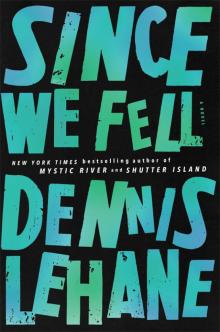 Since We Fell
Since We Fell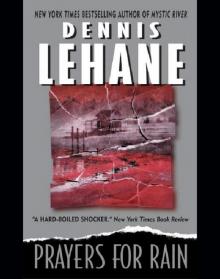 Prayers for Rain
Prayers for Rain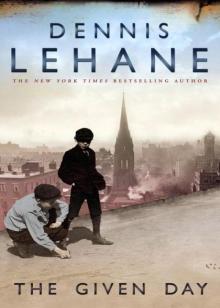 The Given Day
The Given Day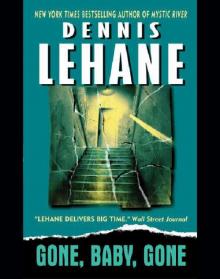 Gone, Baby, Gone
Gone, Baby, Gone Mystic River
Mystic River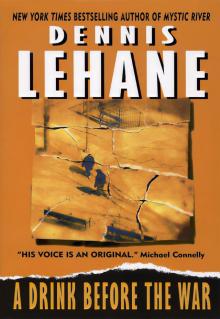 A Drink Before the War
A Drink Before the War Shutter Island
Shutter Island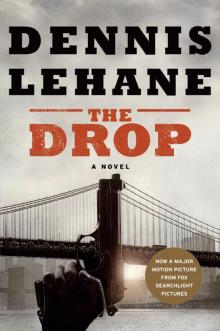 The Drop
The Drop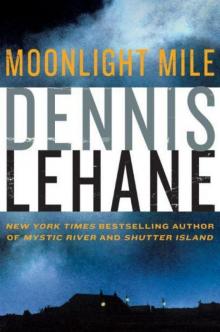 Moonlight Mile
Moonlight Mile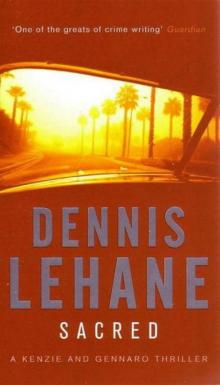 Sacred
Sacred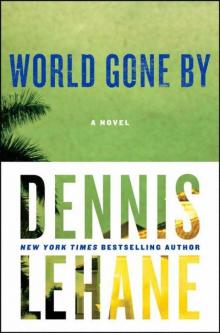 World Gone By
World Gone By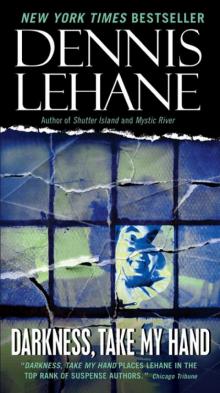 Darkness, Take My Hand
Darkness, Take My Hand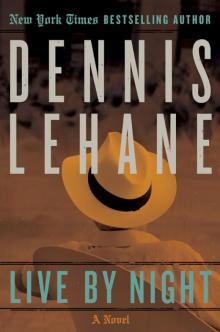 Live by Night
Live by Night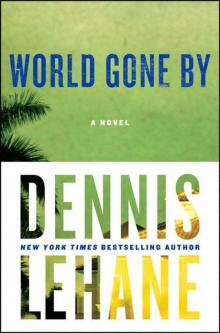 World Gone By: A Novel
World Gone By: A Novel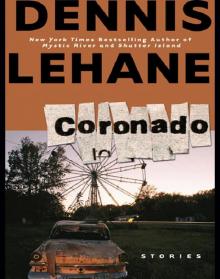 Coronado
Coronado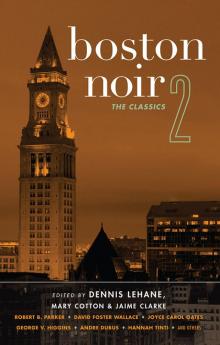 Boston Noir 2
Boston Noir 2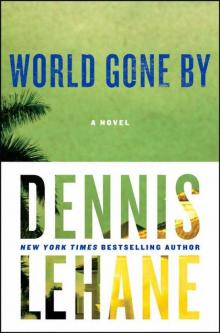 World Gone By: A Novel (Joe Coughlin Series)
World Gone By: A Novel (Joe Coughlin Series)